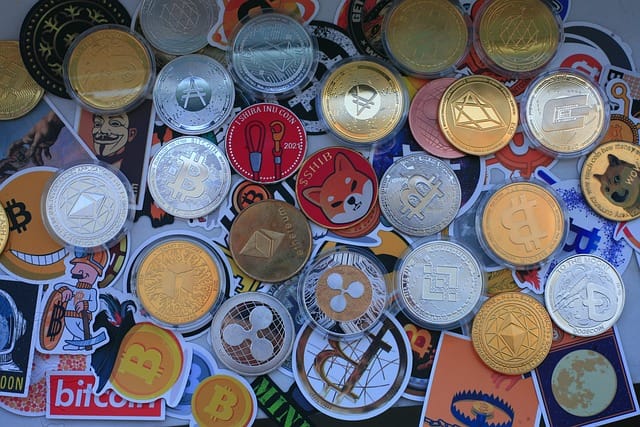One of the most fascinating and ever-developing subfields in the Web3 ecosystem is decentralised finance (DeFi). DeFi has gained much attention from investors and fans because of its potential to transform the financial sector as we know it. While investing in DeFi has many advantages, some hazards should be carefully addressed before deciding.
If you’re eager to learn about the DeFi community, this article is for you. In further detail, we’ll examine the advantages and dangers of investing in DeFi in this post, arming you with the information you need to make wise financial choices. Whether you’re a seasoned investor or brand-new to the world of finance, this piece will provide you with insightful information on the DeFi industry.
Benefits of investing in decentralised finance
DeFi provides several advantages to investors interested in learning more about Web3 financing. DeFi is disrupting the traditional financial sector and creating new options for investors, including the possibility for better returns through yield farming and liquidity mining, decreased intermediaries and transaction fees, and more accessibility and inclusion.
Possibility of greater returns
The possibility of larger profits is one of DeFi’s most alluring features. Investors can earn income on their Bitcoin holdings by lending them to different DeFi protocols through yield farming and liquidity mining. Compound, Aave, and Uniswap are some of the most well-liked procedures for yield farming and liquidity mining.
For instance, users may receive interest on their Bitcoin deposit via the Compound protocol. This interest can then be withdrawn whenever they want. The interest rates may be high depending on the asset being deposited.
Decreased transaction costs and middlemen
The absence of intermediaries and transaction costs is another advantage of investing in DeFi. In traditional finance, intermediaries like banks or payment processors are often needed for transactions, which may be costly and time-consuming. In DeFi, smart contracts automate many of these procedures, doing away with intermediaries and cutting down on transaction costs.
For instance, decentralised exchanges (DEXs) let consumers trade cryptocurrencies without needing a centralised entity like a conventional exchange. As a result, users may do business directly with one another without the necessity of an intermediary. Decentralised exchanges (DEXs) often charge cheaper transaction costs than centralised exchanges (CEXs).
Inclusiveness and accessibility
DeFi has the potential to be inclusive and more approachable than traditional banking, too. Anyone with an internet connection may participate in DeFi since it uses a decentralised, open network. As a result, everyone may use DeFi services and goods, regardless of banking status. As a result, this has helped many developing countries grow economically and access financial services.
Stablecoins, digital currencies whose value is tied to that of a fiat currency like the US dollar, are one type of cryptocurrency that users of the MakerDAO system may generate and trade. These stablecoins may be used for several things, such as remittances and online purchases. Stablecoins are making it possible for people in underdeveloped nations to use financial services that were previously out of their grasp, thanks to MakerDAO.
Investors may participate in the fascinating world of DeFi and contribute to determining the direction of finance with the correct strategy and a dedication to remaining up to date on the most recent developments by following reputable Web3 news from platforms like Bitcoin Decode.
Risks of investing in DeFi
DeFi might have a lot of advantages, but there are hazards that investors should be aware of. Before making any selections, it’s crucial to consider the risks, just as with any investment thoroughly. In this part, we’ll look at some of the main dangers of investing in DeFi, including hacking and smart contract vulnerabilities, market volatility and temporary loss, and regulatory and compliance issues. Investors may decide whether or not to invest in DeFi by being aware of these dangers and taking action to reduce them.
Smart contract vulnerabilities
The possibility of smart contract flaws and hacking hazards is one of the main concerns connected with DeFi investment. DeFi protocols are susceptible to attacks and vulnerabilities since they are based on blockchain technology and employ smart contracts to automate procedures.
For instance, the DeFi protocol bZx suffered two hacks in 2020, costing over $1 million in damages. Another incident saw the Harvest Finance DeFi protocol compromised, costing over $20 million in damages. These well-publicised attacks remind investors that they should thoroughly evaluate the security of any DeFi protocol they want to invest in.
Market volatility
Market volatility and temporary loss are additional risks connected with DeFi investment. DeFi protocols are frequently layered over other blockchain networks, making them vulnerable to market swings that affect other networks. Additionally, if the value of the underlying assets fluctuates, giving liquidity to other users through particular DeFi protocols may result in temporary loss.
For instance, a user could suffer temporary loss if they deposit equal quantities of two distinct cryptocurrencies into a DeFi protocol and one of those coins’ value declines. This loss happens because storing the cryptocurrencies separately instead of providing liquidity would have been more advantageous for the user.
Risks of non-compliance and regulatory uncertainty
Finally, there are regulatory uncertainties and compliance risks associated with DeFi investments. DeFi protocols don’t necessarily have to follow the same rules as conventional financial institutions because they operate outside traditional banking. As a result, there needs to be more clarity regarding the regulation of DeFi protocols as we advance, which may affect such protocols’ long-term sustainability.
DeFi signals a new age in finance, providing investors with exciting opportunities to boost profits, cut out intermediaries and transaction costs, and broaden access to capital. Although DeFi has dangers related to smart contract weaknesses, market volatility, and regulatory uncertainty, these risks may be reduced with careful thought and management techniques. The future of finance will be significantly shaped by the DeFi space as it develops and grows, enabling people to take charge of their financial futures and fostering a more open, transparent, and accessible financial system. Investors may participate in this innovative new ecosystem and contribute to DeFi’s ongoing development and innovation by remaining informed and adopting a long-term mindset.
The above information does not constitute any form of advice or recommendation by London Loves Business and is not intended to be relied upon by users in making (or refraining from making) any investment decisions. Appropriate independent advice should be obtained before making any such decision. London Loves Business bears no responsibility for any gains or losses.






Leave a Comment